Linux commands: uniq
New Courses Coming Soon
Join the waiting lists
A quick guide to the `uniq` command, used to work with duplicate records/lines in text
uniq is a command useful to sort lines of text.
You can get those lines from a file, or using pipes from the output of another command:
uniq dogs.txt
ls | uniq
You need to consider this key thing: uniq will only detect adjacent duplicate lines.
This implies that you will most likely use it along with sort:
sort dogs.txt | uniq
The sort command has its own way to remove duplicates with the -u (unique) option. But uniq has more power.
By default it removes duplicate lines:
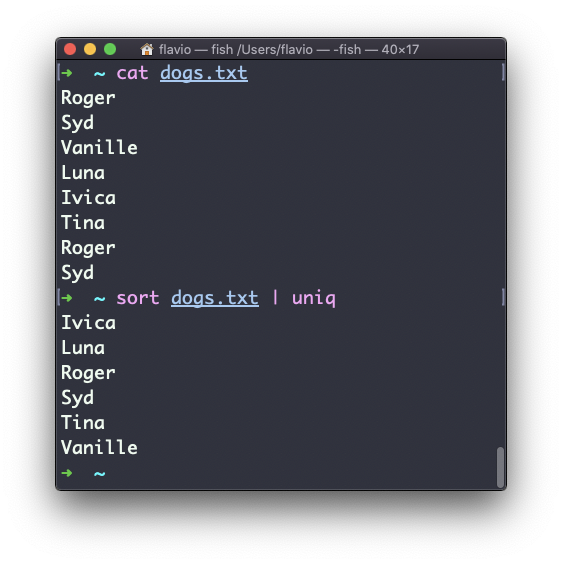
You can tell it to only display duplicate lines, for example, with the -d option:
sort dogs.txt | uniq -d
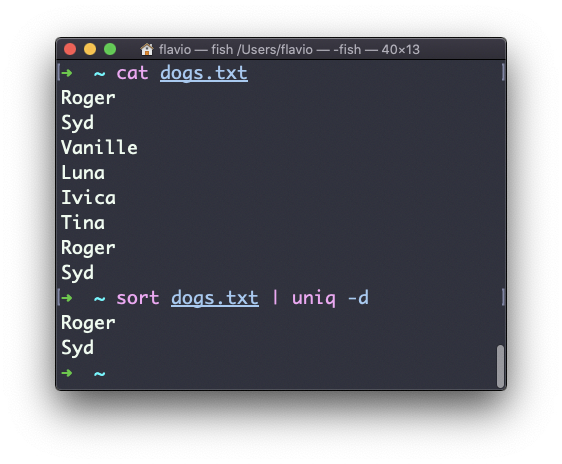
You can use the -u option to only display non-duplicate lines:
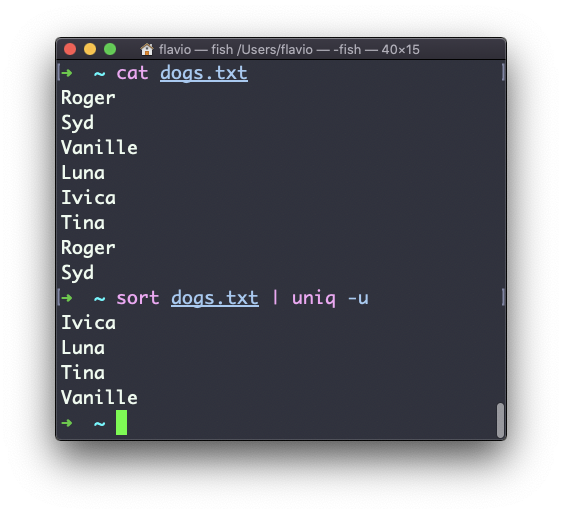
You can count the occurrences of each line with the -c option:
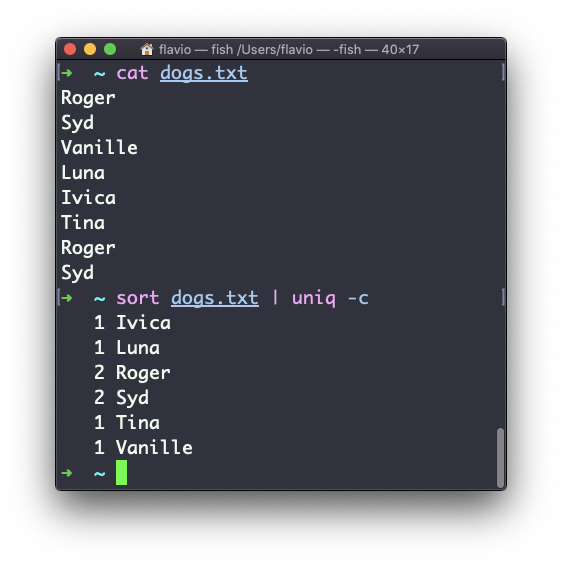
Use the special combination:
sort dogs.txt | uniq -c | sort -nr
to then sort those lines by most frequent:
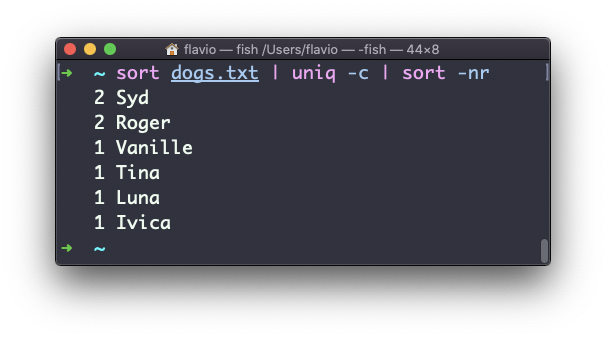
The uniq command works on Linux, macOS, WSL, and anywhere you have a UNIX environment
Here is how can I help you:
- COURSES where I teach everything I know
- CODING BOOTCAMP cohort course - next edition in 2025
- BOOKS 16 coding ebooks you can download for free on JS Python C PHP and lots more
- Follow me on X